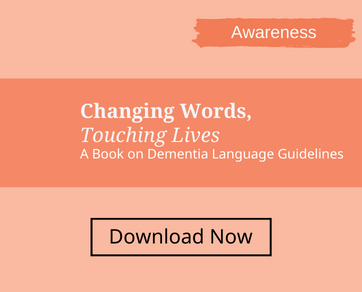Mdm Tinar Tan, 59, is healthy and enjoys doing something new every day by meeting new people. While living well, Tinar believes in being prepared for life’s unexpected circumstances. After speaking to her husband about her wishes for the future, Tinar decided to complete the documentation of her Advance Medical Directive (AMD) and appoint her husband as her Lasting Power of Attorney (LPA). Tinar shares, “I want to be an advocate for documenting end-of-life wishes now and encourage others to do the same while you still can. After completing my LPA and AMD, I know that in the future, I can leave with peace of mind knowing that my family will not be left in a dilemma when making decisions for me.”

Furthermore, Tinar has pledged to donate her brain tissues after death for medical research. Tinar has family members and friends who suffer from conditions affecting the brain, such as Parkinson’s disease and Dementia. Having witnessed the struggles faced by both the patients and their caregivers, Tinar supports research into such conditions for better diagnoses and treatment. After reading about Brain Bank Singapore in The Straits Times, she arranged a visit to the Brain Bank Singapore laboratory to better understand how donated brain tissues are preserved and used in scientific research to study various brain conditions. This led to her decision in November 2020 to pledge for brain donation after death to Brain Bank Singapore.
She shares, “I want to support research into brain conditions especially as brain conditions are on the rise around the world in aging societies. Why not do something good for the next generation?”
Planning for end-of-life decisions can be difficult and uncomfortable. However, thinking ahead to prepare for unexpected situations allows you to consider your wishes based on your preferences and beliefs.
Communicating and documenting these preferences in advance will also provide clarity and help to reduce the stress faced by your loved ones during difficult situations if you lack mental capacity. Your loved ones will not have to rely solely on their own opinions when making decisions for you and be more equipped to make the best decisions for you on your behalf while respecting your wishes.

It is never too early to plan for your future.
The table below shows an overview of ways to plan ahead.

To find out more, visit http://www.aic.sg/caregiving/plan-ahead
Other decisions relating to end-of-life matters include tissue donation after death. Here is an overview of tissue donation programmes in Singapore:

1. The Human Organ Transplant Act (HOTA) is an opt-out scheme that allows for the kidneys, heart, liver and corneas to be removed, for the purpose of transplantation, in the event of death from any cause. Organ donation can help others through a gift of life. All Singaporeans and PRs above 21 years of age are automatically included in this programme.
To find out more, visit: https://www.moh.gov.sg/policies-and-legislation/human-organ-transplant-act
2. Medical (Therapy, Education and Research) Act (MTERA) is an opt-out scheme, where people can pledge their organs, any body parts or whole body for the purposes of transplant, education or research after they pass away.
To find out more, visit: https://www.moh.gov.sg/policies-and-legislation/the-medical-(therapy-education-and-research)-act-(mtera)
3. Brain Donation to Brain Bank Singapore is an opt-in scheme that collects post-mortem human brain tissues via a donor scheme. Brain tissues donated after death are then preserved optimally for use in ethics committee-approved scientific research studies.
Brain Bank Singapore is a national initiative on 27th November 2019. It is a joint partnership between NTU Lee Kong Chian School of Medicine, the National Neuroscience Institute, National Healthcare Group and the NUS Yong Loo Lin School of Medicine. The centre has been set up to provide a national resource of post-mortem brain and spinal cord tissues for vital biomedical research. Why is this so important?
- Unlike cancer research where human cancerous cells can be obtained during surgical biopsy, neuroscience research on human brain conditions has largely relied on animal models, which help to provide preliminary answers to scientific questions but unfortunately cannot reflect the complex human disease process completely. Brain tissues can only be donated after death.
- The second reason is that we need a Brain Bank in this part of the world that can reflect the way in which Asian population genetics and local environment factors can contribute to the way in which the neurological disorder manifests itself and progresses in an individual. This will help to develop precision medicine and early detection in the future. With greater understanding of the detailed mechanisms underlying the brain disease process, scientists can help to identify drug targets for clinical translation to benefit future generations.
Visit www.brainbanksingapore.org or call 6592 6952 / 6592 6547 to find out more about brain donation and how to register as a brain donor.
AUTHOR BIO

Brain Bank singapore
Brain Bank Singapore is a national brain donation opt-in programme which was establish in November 2019 to help in the better understanding of various conditions affecting the human brain such as Dementia, other neurodegenerative and psychiatric disorders, through vital biomedical research. We are partnered by the Lee Kong Chian School of Medicine, National Neuroscience Institute, National Healthcare Group and NUS Yong Loo Lin School of Medicine.
Website: https://www.brainbanksingapore.org/
Facebook: @brainbanksg

